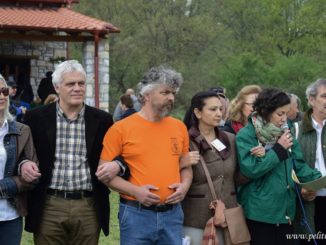
The European Court of Justice last week ruled that plant breeders could not claim lump-sum damages from farmers four times the fee due for licensed production in the case of repeated infringements of an EU regulation on community plant variety rights, without proving concrete damages of that same amount. What follows is a translation of a statement released on March 16 by IG Nachbau, a group working to restore the unrestricted right to farm-saved seed.
IG Nachbau, Luxembourg / Berlin / Lüneburg, March 16, 2023
The attempt of Saatgut-Treuhand (STV) to claim lump-sum damages in the amount of 4 times the Z-license from farmers in the case of repeated infringements of the seed post-cultivation fee regulation, without proving a concrete damage occurrence measured in the amount, has clearly failed before the European Court of Justice in Luxembourg.
In its ruling, the ECJ found that this practice violated the basic regulation on plant variety protection in Article 94 (2) sentence 1 of Council Regulation (EC) No. 2100/94. Although the European Commission has created a provision for the claim of damages in the amount of 4 times the Z-license in Art. 18 (2) of Regulation (EC) No. 1768/95 of the Implementing Regulation, which should enable the seed industry to proceed in the same way, the ECJ has recognized that this implementing provision exceeds the limits of the Basic Regulation. Thus, the ECJ found that the European Commission was not and is not entitled to create this regulation favoring the seed industry. Consequently, neither Saatgut -Treuhandverwaltungs GmbH (STV) nor any other breeder can claim damages above the simple Z-license for a repeated infringement of the post cultivation regulations, if no further damage is claimed and proven.
Jens Beismann, a lawyer from Hanover who works for IG Nachbau, welcomes the ruling. In numerous legal disputes he has argued, as now the ECJ and previously the ECJ Advocate General, and urged a decision by the highest court. Today’s ruling is a success not only for those farms that are currently facing a claim from STV for a quadruple Z license, but also for those who have only made a conditional payment on the claim. They can now reclaim the overpaid amount from STV.
During the oral hearing in 2022, the EU Commission had argued in favor of the quadruple fee, but came under tangible pressure from the questions posed by the court and the Advocate General, who wanted to know how, in the Commission’s opinion, national courts should decide if the actual damage caused by the infringement fell short of the value of the quadruple Z license. Should a court break the legal principle that damages cannot exceed the value of the damage incurred and provide blanket overcompensation? The ECJ has now clearly said “No!” to this.
“It pays to stand up against injustice. This ruling is also a success of the many years of work of the Interessengemeinschaft Nachbau (IGN),” says Georg Janßen, the federal managing director of the IGN and the Arbeitsgemeinschaft bäuerliche Landwirtschaft. Janßen continues: “The fourfold fee arbitrarily set by Saatgut-Treuhandverwaltungs GmbH on behalf of the BDP is pure rip-off to the detriment of farmers. We value a broad-based, medium-sized plant breeding company that relies on diversity of varieties and freedom from genetic engineering and that advocates a ban on patents on seed. However, it is also important for us to see eye-to-eye between plant breeders and farmers. There is no question of this. On the contrary, for more than 20 years, the BDP has repeatedly unleashed the seed trust on farmers in order to intimidate, threaten, control and cash in. In the wake of the ECJ ruling, IG Nachbau calls on the BDP to stop attacking farmers, withdraw all current lawsuits and negotiate the abolition of the farm-saved seed fee scheme.”
Background:
The right to farm-saved seed is a centuries-old right of agriculture. It involves retaining a portion of the harvested crop in order to reseed it so that a new crop can then be harvested. Worldwide, 90 percent is replanted, and in Europe, around 50 percent of the seed harvested has been replanted for years.
More on Seeds:




